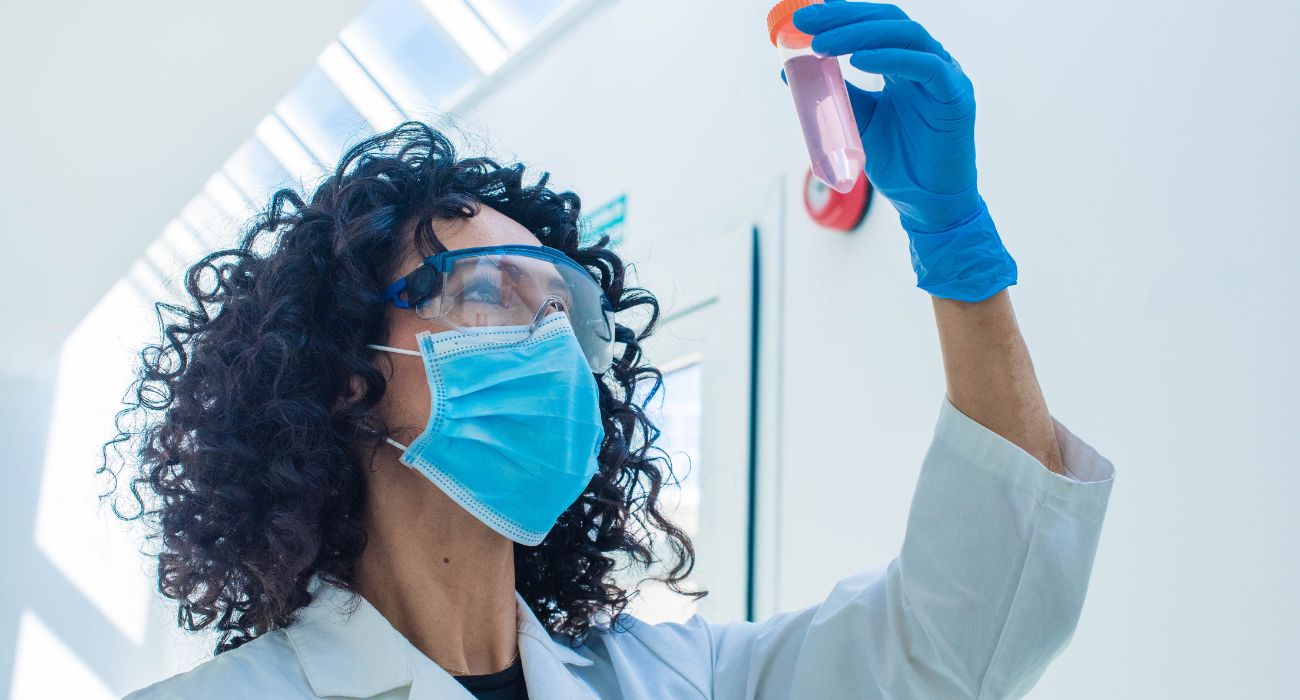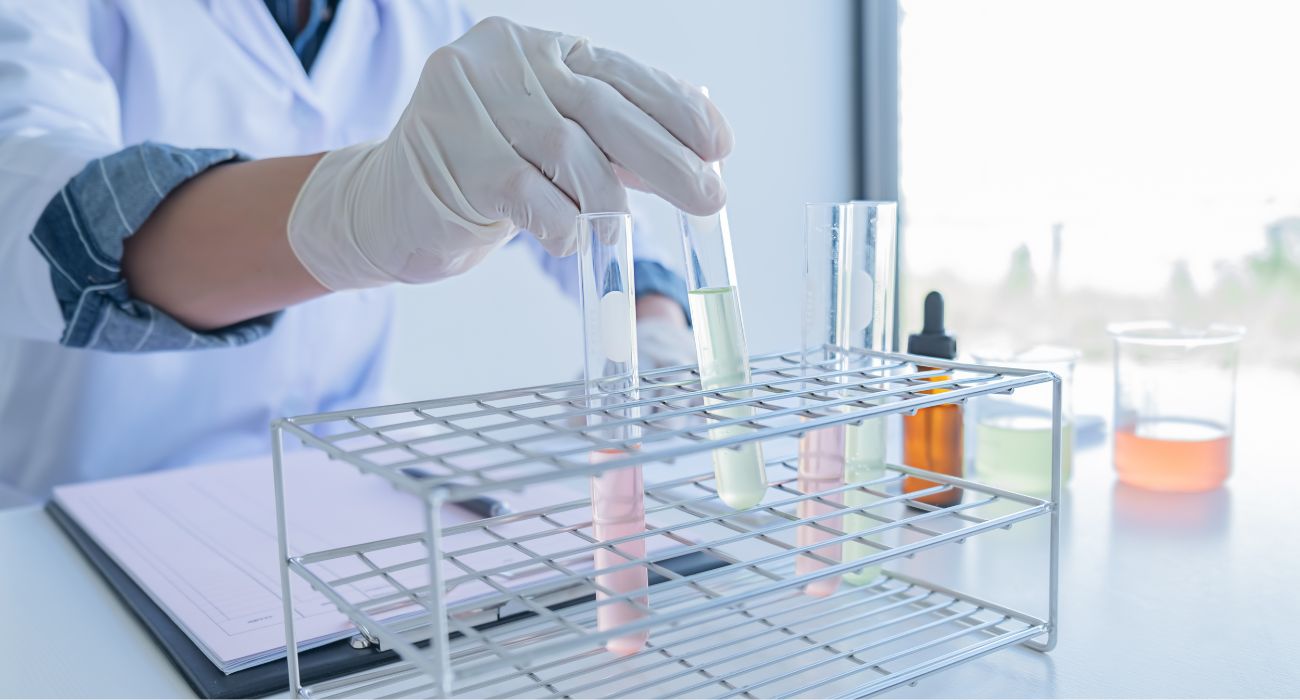What’s Inside an STD Screening Panel?

Sexually transmitted infections (STIs) are among the most common and often overlooked health concerns globally. Many people are unaware they’re infected, as certain STIs can remain silent for weeks or even months without symptoms. That’s why regular STD screening is vital for maintaining your sexual health.
A modern STD screening panel enables you to test for multiple diseases simultaneously. It’s fast, highly accurate, and helps you take control of your health, avoid serious complications, and protect current or future sex partners.
What Types of Infections Are Included?
Depending on the scope of the panel, screening can include tests for both bacterial and viral infections, as well as fungal and parasitic infections in more advanced profiles. Common STDs detected include:
- HIV (Human Immunodeficiency Virus)
A virus infection that affects the immune system. Early HIV testing is vital for diagnosis, monitoring HIV status, and preventing progression to AIDS. - Chlamydia Trachomatis
A bacterial infection often detected through a urine test or a genital swab. Left untreated, it can lead to pelvic inflammatory disease, infertility, and organ damage. - Gonorrhea
Another bacterial STD commonly co-tested with chlamydia. It affects the genital area, rectum, or throat and can lead to serious complications if not treated early. - Syphilis
Detected via blood test or serologic screening, syphilis can progress in stages, ultimately affecting the nervous system, heart, and brain if left untreated. - Hepatitis B and Hepatitis C
These virus infections affect the liver and are transmitted through sexual contact or blood. Hepatitis C, in particular, can cause chronic infection, liver scarring, or cancer. - Genital Herpes (HSV I & II)
Caused by the herpes simplex virus, this lifelong infection results in periodic outbreaks and can be transmitted even when no symptoms are present. - Trichomonas Vaginalis
A parasitic infection that affects both men and women, often with mild or no symptoms. It can potentially lead to irritation and increased HIV susceptibility. - Mycoplasma and Ureaplasma
These bacteria may cause genital irritation, urethritis, or complications during pregnancy. They’re commonly tested for in broader STI panels. - Human Papillomavirus (HPV)
A common virus with high-risk strains that can cause genital warts and increase the risk of cervical cancer, especially in sexually active women. Cervical cancer screening may also be recommended alongside HPV testing for added protection.

Comprehensive vs. Basic Panels
Some panels focus on the most common infections, typically 4 to 7 pathogens. Others are more comprehensive and test for up to 20 or even 33 pathogens, offering complete sexual health insight.
These expanded panels are ideal for:
- Those with symptoms but an unclear diagnosis
- Individuals with concurrent partners
- People who have tested positive for an STI in the past
- High-exposure professions or individuals with frequent sexual activity
- Couples planning to stop using protection or who want pre-relationship clearance
Generally speaking, a basic panel will do the trick for most people. Those who are at increased risk might consider undergoing comprehensive testing.
Why Is STD Screening Important?
Regular STD screening is one of the most effective tools for protecting both individual and public health. It helps identify infections early, prevent transmission, and reduce the long-term burden of sexually transmitted diseases across communities.
Here’s why it matters:
1. Many STDs Are Symptomless at First
One of the most dangerous misconceptions about sexually transmitted infections (STIs) is that you’ll always know when you have one. In reality, many STDs, including chlamydia trachomatis, gonorrhea, hepatitis B, and HIV infection, often begin with no symptoms at all.
These infections can remain undetected for a few weeks or even months, quietly progressing and spreading to others through sexual contact. By the time symptoms like discharge, itching, or discomfort emerge, the infection may have already caused serious complications, including organ damage, infertility, or systemic illness.
2. Early Detection Prevents Health Problems
Getting tested regularly is about more than just peace of mind. It can stop infections before they become dangerous.
Early diagnosis enables swift access to treatment options, reducing the severity of the condition and preventing further spread. For example:
- HIV testing helps individuals understand their HIV status and begin treatment early if needed. Modern therapy can suppress viral load, reduce the transmission risk, and improve long-term health outcomes.
- Chlamydia and gonorrhea are both bacterial infections that respond well to antibiotics. When undiagnosed, they can lead to infertility, chronic pain, and long-term reproductive issues.
- Hepatitis C, a virus infection that often goes unnoticed, may eventually cause liver damage, scarring (cirrhosis), or even liver cancer if left untreated.
- Genital herpes and syphilis can be managed effectively when caught early. However, if untreated, they may affect the brain, nerves, or cardiovascular system.
- Human papillomavirus (HPV), though not always included in standard panels, is a leading cause of genital warts and cervical cancer, further highlighting the importance of cervical cancer screening alongside STD testing.
Following recognised treatment guidelines early prevents complications and ensures better outcomes for you and your sexual partners.
3. Testing Supports Disease Control
STD screening isn’t just a personal responsibility. It plays a crucial role in disease control and public health. Many sexually transmitted infections are passed unknowingly between partners, especially when symptoms are mild or nonexistent.
By identifying infections early, testing helps:
- Reduce community-wide transmission rates
- Enable prompt notification and treatment of sexual partners
- Prevent outbreaks in high-risk populations
- Decrease the overall healthcare burden related to untreated STDs
Making routine STD screening a routine part of your healthcare, just like checking blood pressure or cholesterol, is essential for anyone sexually active. It keeps you informed, your partners protected, and your community safer.

How Is Testing Performed?
STD testing isn't a one-method process. Different sexually transmitted infections require different sample types and testing techniques to ensure accurate results. Whether you’re being tested for a single infection or undergoing a full STD screening panel, your healthcare provider will recommend the most appropriate method based on your symptoms, risk profile, and the pathogens being screened for.
Here’s a breakdown of the most common STI testing methods used today:
Urine Test
A urine test is one of the simplest and most commonly used methods for detecting bacterial infections, especially:
- Chlamydia trachomatis
- Neisseria gonorrhoeae (gonorrhea)
You’ll typically be asked to provide a first-catch urine sample, which means the initial part of your stream, as this is where bacteria are most concentrated. This test is especially useful for individuals without symptoms and is widely used in routine STD screening for both men and sexually active women.
Blood Test
A blood test is essential for detecting viral infections and certain bacterial STDs that affect the bloodstream. It is the primary testing method for:
- HIV (Human Immunodeficiency Virus): Helps determine HIV status and stage of infection
- Syphilis: Using serologic screening methods such as RPR or VDRL
- Hepatitis B and Hepatitis C: Through antibody and antigen testing
- Genital herpes (HSV I & II): Particularly if symptoms are absent but exposure is suspected
HIV testing via blood sample is considered the gold standard, offering early detection and more reliable results compared to rapid oral tests. Many providers also use ELISA (enzyme-linked immunosorbent assay) for increased accuracy in hepatitis and HIV infection screening.
Swab Test
A swab test involves collecting a sample from the genital area, throat, or rectum to detect infections that may not be visible in urine or blood. Swabs may be self-collected or taken by a healthcare professional, depending on the location and type of infection.
Common uses include:
- Vaginal or cervical swabs for detecting bacterial STDs and HPV in sexually active women
- Throat swabs for gonorrhea or chlamydia in individuals engaging in oral sex
- Rectal swabs in men who have sex with men or anyone engaging in anal sex
- Culture tests for suspected fungal infections or resistant bacterial strains
These tests are often part of broader STD panels, especially for individuals with multiple partners or persistent symptoms.
Genital Swab (Culture or PCR)
A genital swab is specifically designed to collect material from the vaginal, penile, or anal region to identify:
- Bacterial infections like Ureaplasma, Mycoplasma, and Gardnerella
- Fungal pathogens such as Candida Albicans, which can cause yeast infections
- Other virus infections in symptomatic areas
These swabs may undergo culture testing or PCR (polymerase chain reaction) analysis to detect the DNA or RNA of the pathogen. This is particularly useful for precise identification and for determining treatment options in accordance with clinical treatment guidelines.
Serologic Screening
Serologic screening involves analysing your blood for antibodies produced in response to infection. This is commonly used for long-term or chronic infections, such as:
- Syphilis: Confirmed via RPR/VDRL followed by a specific treponemal test
- Hepatitis C: Cases where antibody testing indicates past or current exposure
- HIV: Great for early-stage HIV infection, where combination testing (e.g., p24 antigen and antibodies) increases detection accuracy
These tests are especially helpful in identifying infections in people without symptoms. They also help during window periods when the virus or bacteria may not yet be present in high enough levels to appear on other test types.

Choosing the Right Test
Your healthcare provider will help determine which tests are appropriate based on:
- Type of sexual activity (e.g. vaginal, anal, or oral sex)
- Your sexual partner history
- Known risk factors (e.g., prior positive test results, unprotected exposure, or being in a high-risk group)
- Presence of symptoms in the genital area, throat, or elsewhere
- Whether you’re undergoing routine screening, experiencing a new partner, or following up on a previous infection
Understanding how each STD test works helps ensure that you’re getting the right screening for your situation.
Who Should Consider STD Testing?
STD screening is a routine part of health maintenance for anyone who is:
- Sexually active
- Engaging with a new sexual partner
- Having sex with men, particularly in MSM populations
- Involved with multiple partners or concurrent partners
- Experiencing symptoms such as discharge, pain, itching, or sores
- Preparing for cervical cancer screening, as HPV and cervical cancer are closely linked
- Living with HIV or hepatitis and monitoring co-infections
According to the American Cancer Society, sexually active individuals should be screened regularly for certain STIs, even if no symptoms are present. This makes testing especially important for women under 25 and men who have sex with men.
Understanding Your Test Results
After your STD screening is complete and your samples have been analysed, you'll receive a detailed report that outlines your test results in a clear and confidential format. This report typically includes:
- A complete list of all sexually transmitted infections (STIs) screened during the panel
- Clear indication of either positive test results or negative findings for each infection
- Clinical notes explaining the significance of any positive result, whether it indicates an active virus infection, a past exposure, or a low-level bacterial presence
- Guidance on what your results mean in the context of risk factors, previous tests, or existing symptoms
- Potential next steps and treatment guidelines, if applicable
For example, if you test positive for chlamydia trachomatis, the report may recommend starting a course of antibiotics and notifying any recent sexual partners. If hepatitis C antibodies are detected, additional blood tests may be needed to confirm active infection and assess liver health.
Why Contact a Doctor?
Your test results are not a diagnosis in isolation. The context also matters, including your sexual activity, symptoms, and medical history. That’s why follow-up with a qualified healthcare provider is always advised.
A medical professional will:
- Help you interpret your results
- Discuss appropriate treatment options
- Offer support with partner notification
- Arrange for retesting, if needed
- Recommend further screening (such as cervical cancer screening or additional panels) depending on the infection and exposure history
Prompt action is key. Left unaddressed, many STIs can lead to serious complications, including organ damage, chronic inflammation, infertility, and an elevated risk of acquiring or transmitting other infections such as HIV.
Whether you are sexually active, considering a new partner, or managing positive test results, taking responsibility for your health begins with clear, actionable information and expert support.
Discreet, Accurate Testing With Vervé Wellness
At Vervé Wellness, we’ve reimagined how sexual health testing should feel: private, fast, and conclusive without the need to visit a clinic or wait in uncomfortable settings.
Our Concierge STD Testing service brings the most advanced diagnostic tools directly to your home, empowering you to stay informed and protected with total discretion.
Here’s what to expect:
- At-Home Sample Collection: We offer convenient kits for urine tests, swab tests, and nurse-assisted blood draws, all arranged at a time that works for you.
- Unmarked, Secure Packaging: Your kit arrives in plain packaging for full discretion and includes easy instructions.
- Results Within 24–72 hours: All tests are processed at accredited labs using gold-standard PCR and ELISA testing methods, ensuring hospital-grade accuracy.
- Expert Clinical Support: Should your panel reveal a positive result, our team provides confidential advice on treatment, retesting, and partner care.
- Flexible Screening Options: From single HIV testing to advanced 33-pathogen STD panels, we tailor your testing experience based on your lifestyle, history, or symptoms.
Whether you’re testing due to unprotected sex, checking in before becoming intimate with a new sexual partner, or seeking clarity on a prior positive test, our goal is to make getting tested stress-free and empowering.
Your sexual health is too important to ignore and too personal for one-size-fits-all care.
.png)

.jpg)